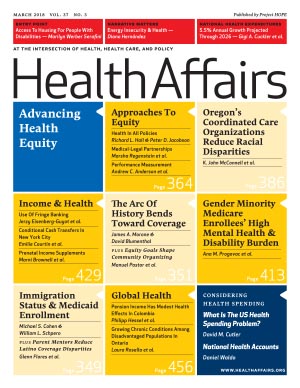
Article: The role of medical-legal partnership in promoting health equity
Monday, March 5, 2018
Read the article, "Addressing Social Determinants of Health Through Medical-Legal Partnerships"
This article shares how more than 300 hospitals, health centers, and clinics across the U.S. are using legal services to treat issues–including housing, access to insurance, and stable guardianship–that drive health inequities. The authors drew on national survey findings and field research to identify multiple models for delivering medical-legal partnership services in clinical settings ranging from pediatric primary care clinics serving low-income neighborhoods, to health centers with highly specialized programs for complex, chronic conditions, and examined how health care organizations adapt the intervention to best meet the specific needs of its patients. While the models of delivery vary, the paper’s authors also identified eight core elements that define the intervention. Looking to the future, the article concludes that to properly scale the intervention, medical-legal partnerships need more sustainable funding. The authors also highlighted the need to better align this intervention with other social determinant of health clinical initiatives, and for practical guidance on how to target scarce medical-legal partnership resources. This commentary was published as part of a special edition of Health Affairs on “Advancing Health Equity.”
